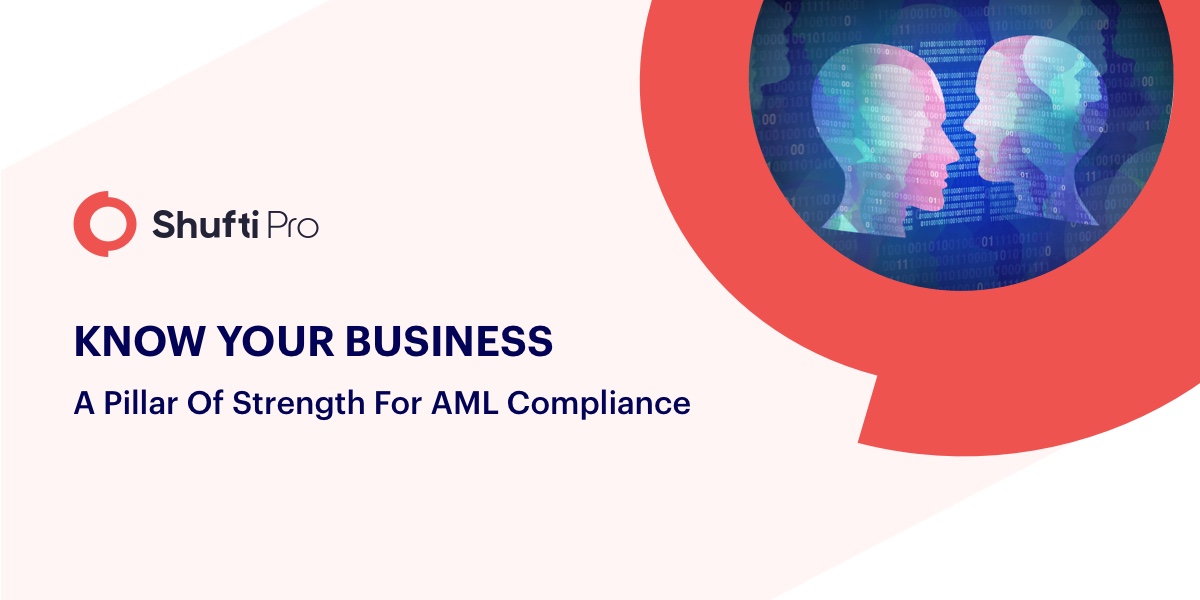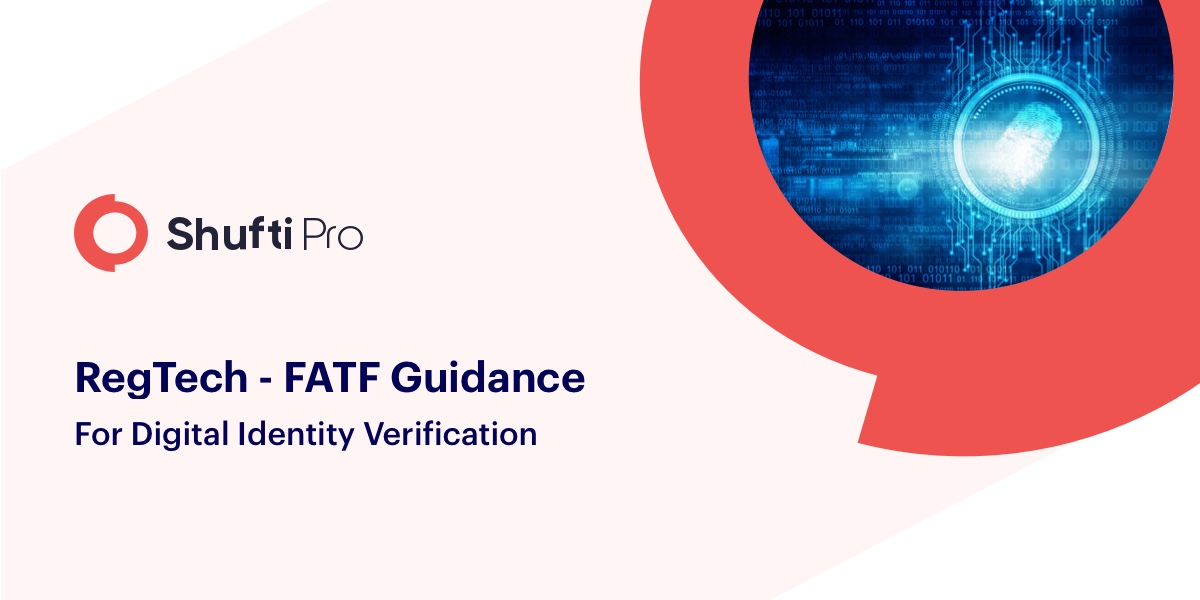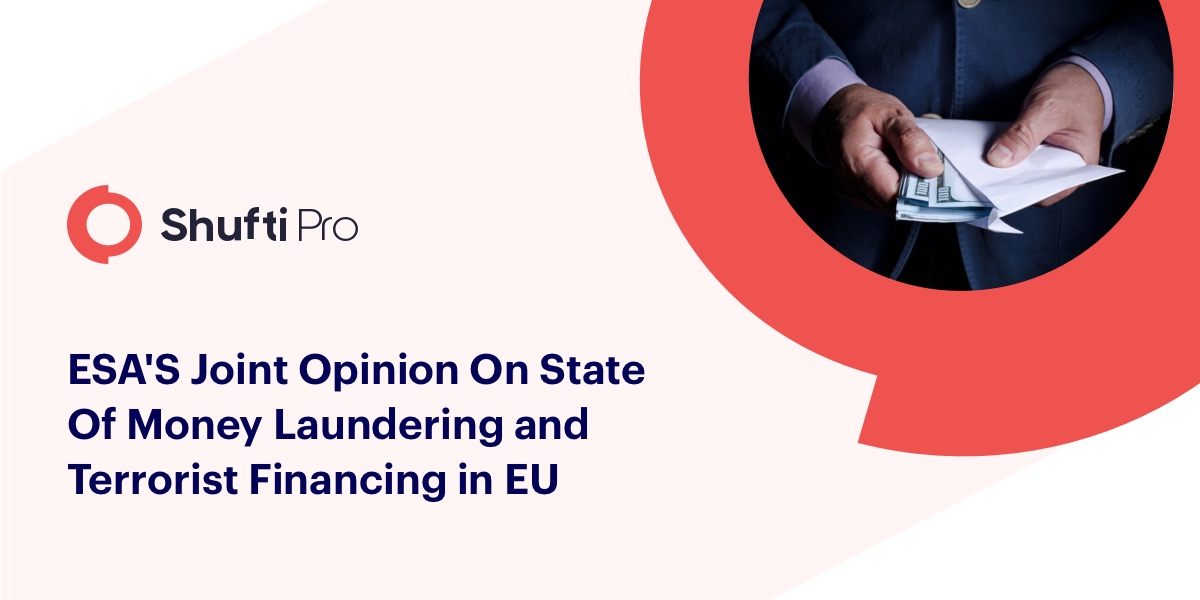Know Your Business-Pillar of Strength To AML Regulations

Moving in the world of technology, where every industry is going digital, there has been very less transparency among the businesses. Collaborating with businesses and entities online leaves room for some suspicious activities – means you will have no idea about the identity of the person on the other end. For example, the business you are onboarding may be a shell company or funding the terrorist.
Know your business (KYB) – these three words always seem to pop up everywhere in the industrial sectors, especially in financial institutions. KYB has successfully evolved from Know your customer (KYC) process and has eventually become an important part of today’s regulatory firms. It plays a vital role in low-friction regtech platforms to serve all types of customers without getting involved in illegal activities and entities.
The Bank Secrecy Act (BSA) of 1979:
Back in 1970, when the Vietnam war was on the full swing, a deadly confrontation erupted regarding drug trafficking. As a result, the administration laid a strong foundation against the War of Drug. The Bank Secrecy Act of 1979 (BSA) was introduced as a part of this policy agenda to deter illegal fundings. The BSA requires all U.S. financial institutions to report certain types of customer activities to the regulatory firm – FinCEN, the federal Financial Crimes Enforcement Network. For instance, financial firms need to report about the transactions totaling $10,000 or above.
The intentions of these regulations were to hinder the cartels, drug smugglers and other productive criminal enterprises from moving money through the US. The BSA makes the transactions more visible to the federal law enforcement hence starving the actors from their profits.
From KYC to KYB
The BSA is itself a foundation for the anti-money laundering (AML) regulations also known as Know your customer (KYC) compliance. It was enumerated in the 2001 USA Patriot Act as a result of the 9/11 incident and came into effect in 2003 – adopted by a joint resolution of federal financial agencies. These regulations intend to curb the flow of money to terrorist factions and other money laundering crimes. To meet these regulations, the institutes are required to maintain a record of personally verifiable information of every customer.
It won’t be an understatement to say KYC was built upon the BSA, which enforces the financial firms to ensure the identity of their customers that they are who they claim to be. However, the BSA rules were somehow vague that were covered by KYC regulations with the introduction of the Customer Identification Program (CIP) and Customer Due Diligence (CDD).
While KYC compliance ensures the identity of the customers and keeps an eye on the risk factors associated with them, but unfortunately there is still a major loophole unsolved. That is the financial institutes weren’t required to identify or verify the stakeholders and beneficiaries of the businesses and entities they are serving. This means that legitimate firms could unknowingly shelter bad entities or shell companies while performing illegal and high-value transactions on their behalf. Doing so makes the financial firms equally responsible for the illicit transactions taking place right under their nose.
This issue came into light through the scandal of Panama papers back in 2016 and as a result, KYB services were introduced for business verification.
Dive Deep into KYB
The officially titled “Customer Due Diligence Requirements for Financial Institutions” is what we consider as know your business checks or KYB. It can be taken as an extensive form of knowing your customer since it doesn’t only verify the name of the person to whom the business is registered. It also enforces the institutions to verify the identities of the chief executives and any other person who owns 25 percent or more of the business.
KYB compliance covers an entire industry of consultants who facilitate various firms to ensure that their business customers are properly investigated and none of them are involved in illegal activities. Every financial institution, merchant acquirer or payment companies who deal with money transfers and transactions, is enforced to perform KYB check of the businesses with whom it does business.
The checks for KYB solutions include the verification of company registration, business license, identification of a business, and other executives of the business. The KYB compliance requirements may vary from address and date of birth to driving license, passports and bank statements. Moreover, these checks are also performed against sanction lists, PEPs, Adverse media, and disqualified directors.
These authentication checks are carried out by the KYB solution providers depending on the nature of the business, transaction value, suspicious reports, and more importantly the country legislations.
The Role of 5th AML Directive
The regulatory regimes around the world are continuously changing with every passing day. Last year, two major regulatory directives were updated, the 2nd Payment Services Directive (PSD2) and the Fifth Anti-Money Laundering Directive (AMLD5). The PSD2 requires financial institutions to make certain data available to other institutions through the use of APIs (Application Programming Interfaces). Whereas, AMLD5 compels the financial businesses to keep tight reins on the personal information online.
The businesses from financial institutes to merchants, everyone is facing regulatory pressure to meet stringent verification requirements. To do so they deliberately need to adjust the processes to conduct due diligence. The 5th AML directive along with PSD2 and GDPR regulates organizations to verify the businesses – the KYB compliance.
AMLD5, in particular, holds liability for the EU states to collect all the legal documentation regarding the company in a central registry. Moreover, it is mandatory that this central registry must be available and accessible to all the obliged entities that are required to perform business verification.
Enhanced Due Diligence
After the Panama Paper Scandal, verifying the business entities and the mainstream business structure is an integral part of AML compliance requirements, compelling enhanced due diligence (EDD). It obliges securing additional information about the business client, for instance, the nature of the business relationship, source of funds, transaction history and the enhanced monitoring of the business relationship.
KYB in Europe
In Europe, the 4th AML Directive is already in effect and by January 2020, AMLD5 will also be in action. The AML 4 requires the businesses to identify the obliged entities and take prudent measures to verify their identities. It facilitates the businesses to know about the UBOs in regards to trust, foundations, and legality of the entities to better understand the structure of the business and customers.
According to defined rules, the beneficial proprietor in the EU is any person who owns 25% of the corporate business. However, in the upcoming AMLD5, the proposal is lowered to 10%.
KYB in the US
The Customer Due Diligence (CDD) Final Rule has been in effect since May 2018, in the US. This rule states as:
“Beginning on the Applicability Date, covered financial institutions must identify and verify the identity of the beneficial proprietors of all legal entity customers (other than those that are excluded) at the time a new account is opened (other than accounts that are exempted)”
As per the regulations, the financial institutes include banks, dealers and brokers, mutual funds and futures commission merchants. However, different jurisdictions constitute different requirements. In fact, even one region may have different regulations to be applicable to the state members. For example, the US financial institutes, in addition to the Bank Secrecy Act (BSA), they are liable to OFAC (Office of Foreign Assets Control), FACTA (Foreign Account Tax Compliance Act) and SEC disclosure rules.
KYB Process – From Weeks to Seconds
Performing Business verification is quite difficult, time-consuming and costly. Most of the companies hide their true identities in order to surpass the money trial. Also, the shell company can obscure their true information in filling and different jurisdictions. The percentage of possession is mostly disguised through different paper trials which makes it difficult to identify. In fact, in some countries, there is no proper paper trial – means no documentation is required for setting up a business, hence no source to investigate for shareholders’ information – which is against the FATF, AML and CTF regulations.
Some of the companies are overcoming this problem by implementing KYB solutions just like KYC. However, manual verification is quite slow, error-prone and costly. To incorporate this con, the KYB solution providers are actively adopting automated ways to verify the businesses in real-time.
In this era of high competition and complex compliance requirements, there is a need for electronic ID verification of business. By automating the KYB process, the financial institutes can securely access the UBOs identifying information from the central registry and verify it. Moreover, meeting the KYB compliance can paramount the complex regulatory environment.

 Explore Now
Explore Now












